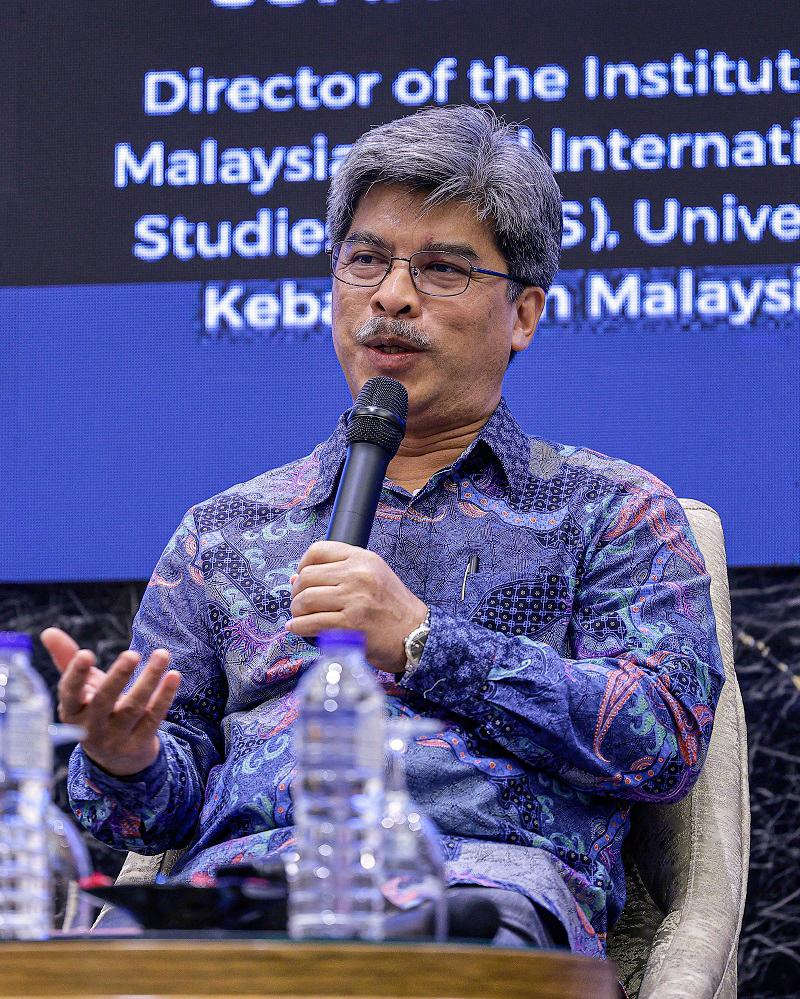PUTRAJAYA: As Malaysia prepares to assume the chairmanship of ASEAN next year, it must now lay out its groundwork that could benefit the country for the next 20 years, leveraging key sectors including the semiconductor, electric vehicles and digitalisation.
Director of Institute of Malaysia and International Studies, National University of Malaysia Professor Dr Sufian Jusoh said this is pivotal as it could ensure that the country’s interests are not just protected but promoted.
“We have established our biggest achievement when we become one of the founding members in 1967 and up until now I think we can be proud of ourselves that we managed to be champion in certain sectors namely banking and halal economy.
“But at the same time we also need to have a lot more discussions on mutual recognition arrangement in engineering, architecture and also education,” he said at a forum on The Future of ASEAN Under Malaysia’s Chairmanship here Thursday.
Sufian said Malaysia’s trade with ASEAN rose by 34 per cent to RM772 billion in 2022 from the previous year.
Trade with ASEAN accounted for 27.1 per cent of Malaysia’s total trade in 2022.
On Malaysia’s free trade agreements (FTAs), he said total trade under the FTAs accounted to RM1.069 trillion while imports totalled at RM847.06 billion.
Malaysia has to date signed and implemented a total of 16 FTAs (seven bilateral FTAs and nine regional FTAs).
Notably, in 2022, the country implemented two mega FTAs, namely Regional Comprehensive Economic Partnership (RCEP) and the Comprehensive and Progressive Agreement for Trans-Pacific Partnership (CPTPP).
On connectivity, Sufian praised the Keretapi Tanah Melayu Bhd (KTMB) for connecting Malaysia, Thailand, Laos and China.
The service would connect new trade routes and multiple inland ports across the region, including the Kontena Nasional Inland Clearance Depot (KNICD) in Selangor, Perlis Inland Port, Thailand’s Latkrabang Inland Port and the Thanaleng Dry Port in Laos, all of which are pivotal trade hubs.
It was reported that the service provided by KTMB can reduce the transit time of goods between the nations, with the transit time from KNICD to Chongqing, China, expected to take only nine days compared with 14 to 21 days by sea.
“That shows big achievement to connect us to the rest of the world by train,” he said.
Meanwhile, Sufian called for more non-government experts that could help to relay the message, especially to the entrepreneurs doing small and medium enterprises in the suburban.
“Perhaps they could further help the SMEs and explain about ASEAN’s initiative and how they can manoeuvre the ASEAN bureaucracy because ASEAN is also bureaucratic (sometimes),” he said.









